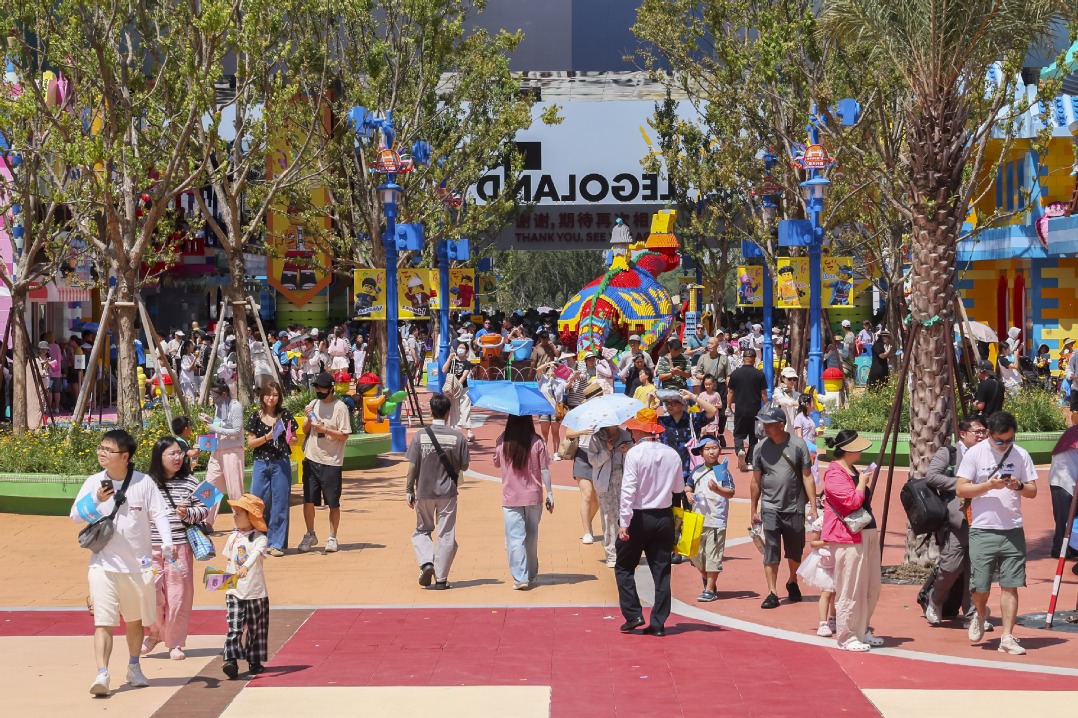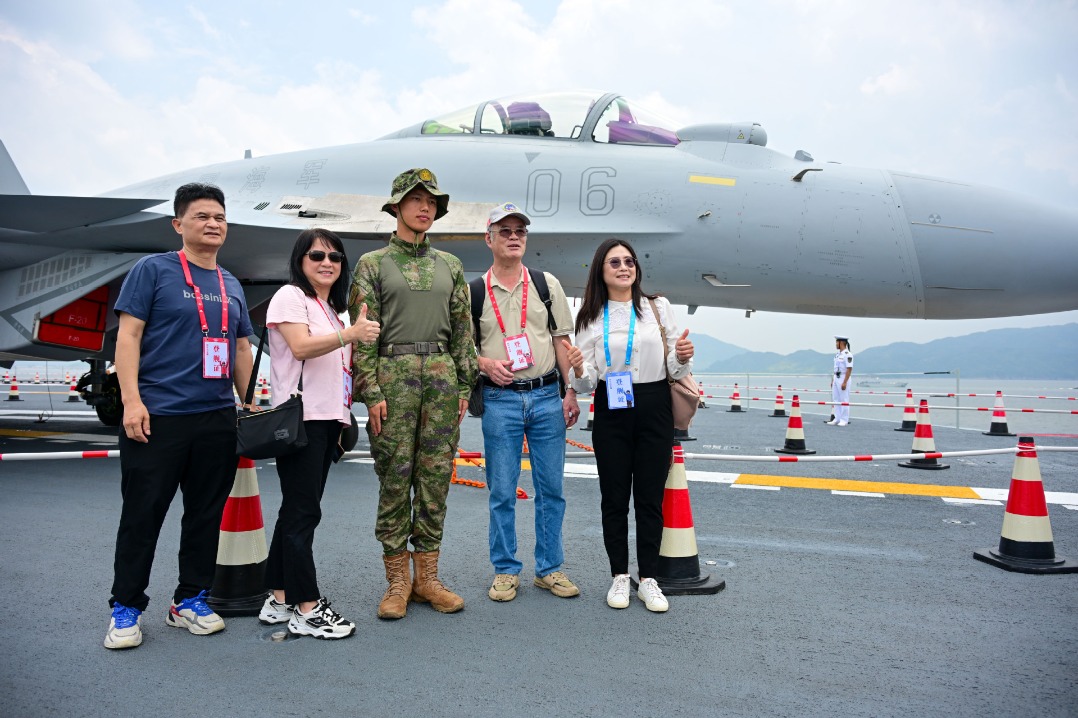Comedy Showdown

| Guo Degang (left), one of the most popular modern xiangsheng practitioners in China, performs with his partner Yu Qian, in Nanjing, Jiangsu province. Provided to China Daily |
How to be, not cross, the Chinese humor line
Ryan Ha sits in the corner at Taps bar in Beijing's Sanlitun district (三里屯). He looks out at the crowd, milling about their drinks and sausage platters. Behind him, a backlit poster reading "Comedy Club China" is pinned against the back wall of the stage. Ryan is the evening's compere and the operations manager for Comedy Club China. He spits information at light speed: dates, names, roles, places - showing he can think on his feet, a key trait for any good comedian.
Standup comedy (獨角滑稽戲 dú jiǎo huájīxì) is a particularly nascent phenomenon in Beijing's rapidly evolving cultural landscape; as such, the institutions out there supporting the Beijing stand-up scene are few and far between. Comedy Club China is one of the few that manages to stand on its own feet.
Telling jokes is hard, especially in a foreign country, to those who may be downright offended by the willingness of stand-up comedians to use sex, toilet humor and their troubles in China as skit material. As a result, comedy is often lost in translation. Humor (幽默 yōumò) relies so much upon word-play, social and cultural situations and linguistic or syntactical twisting that what is hilarious in one culture may be completely lost upon others, or worse yet, may offend. Western stand-up comedy in China is no exception - lines can be toed, but not crossed.
"If there's one thing I've learned, Chinese people prefer that you laugh with them, not at them," Ha says. For example, instead of plainly attacking Chinese people's habits, one might have to, "find a roundabout way of poking fun at them".
"Chinese people, traditionally, aren't interested in talking about their personal experiences," says Carlos Ottery, the founder of Comedy Club China. "They love hearing about how foreigners screw up Chinese phrases and words, which I personally don't find that funny, and they love situational humor. But they're definitely less willing to put themselves on the line."
"Chinese people don't necessarily need to combine politics and humor in order for a set to be funny," says Jesse Appell, a current Fulbright fellow, Brandeis University alumnus, and frequent contributor to the Beijing comedy scene, hailing from Boston. "Politics is such an important aspect of comedy in the West that we don't even realize it. Once people come to China and realize that Chinese comics aren't hearing people take a swing at the government, they get less enthusiastic." Appell believes that when Chinese comics address politics with comedy, they tend to do so in a way that is more nuanced and deep.
Despite what you might think, the concept of "stand-up" has been around for centuries. Cross-talk or xiangsheng (相聲) is considered a subgenre of quyi (曲藝), or balladic arts, which include singing, dialogues and storytelling. It is usually performed as a duet, but can also be performed as a monologue and in groups. Xiangsheng usually employs the use of linguistic puns (雙關shuāngguān) and base humor that pokes fun at literary and historical figures. And, at times throughout its history, it provides social commentary. While xiangsheng has no English equivalent, its closest parallel might be Abbott and Costello's Who's On First, according to China superstar and xiangsheng performer Mark Roswell - better known by his Chinese name Da Shan.
It is unclear as to precisely when xiangsheng became popular as an independent art form, but historical documents place the elevation of xiangsheng to a unique street-performance art around the mid-1800s. "The difference between xiangsheng and your average stand-up revolves around the specific traditional structure and flow of the performance," Appell says. "If you are a good xiangsheng performer, you will be able to perform the ‘clown' role (丑角 chǒu jué) in Peking Opera (京劇 jīngjù). The humor comes from finding ways to use these specific traditions of pace, timing and story-telling techniques, handed down from Peking Opera, to make jokes.
"Because xiangsheng was a street-performance art, xiangsheng artists combine literary knowledge with, basically, fart jokes. Everybody laughs at fart jokes, but some performers were skilled enough to get people to laugh at literary jokes as well."
Xiangsheng is still very much alive today, and is performed at venues all over Beijing, Tianjin and in many parts of northern China. According to Appell, the most popular modern practitioner is probably Guo Degang (郭德綱), whose comedy club, De Yun She (德云社), hosts xiangsheng shows from up-and-coming performers weekly.
While Appell says that the technique is kept mostly intact, he adds that the content has become modernized and people hear jokes about KFC and McDonalds and how skimpy two-piece bathing suits are. Indeed, the single-person xiangsheng performance (單口相聲 dānkǒu xiàng shēng), previously focusing on storytelling and xiangsheng technique, has been modernized by artists such as Fang Qingping (方清平) in a way that more and more resembles stand-up comedy.
Ultimately, both of these forms strive toward one goal: laughter. "When Chinese people come in and make jokes in English and we all laugh, I love that," Appell says. For Ottery, finding those key moments that bridge Chinese and Western senses of humor is what he lives for.
"If channeled correctly, I think comedy can bring an end to nuclear war, poverty, hatred, famine, and even death and taxes," he says.
Research by Jesse Appell.
Courtesy of The World of Chinese,
www.theworldofchinese.com
The World of Chinese
(China Daily 05/03/2013 page17)
Today's Top News
- Li says to expand cooperation with Brazil in digital economy, aerospace
- Grouping at a crossroad of multipolarity
- BRICS must improve global governance
- Mechanism empowering development
- China to expand cooperation with Brazil in digital economy
- Xi Story: Under Xi, China's first 15-year city plan resonates far































